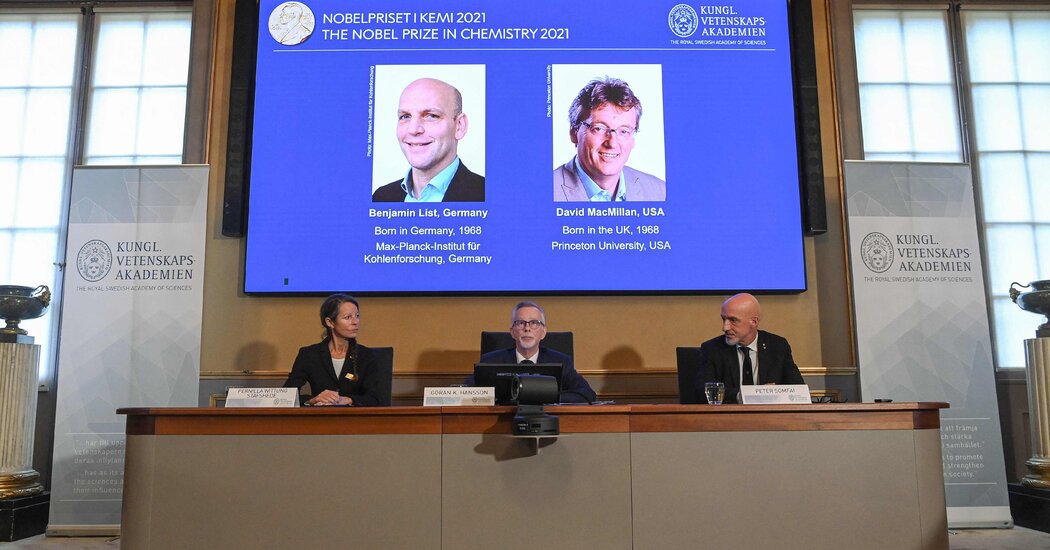The Nobel Prize in Chemistry was awarded on Wednesday to Benjamin List and David W.C. MacMillan for their development of a new tool to build molecules, work that has spurred advances in pharmaceutical research and lessened the impact of chemistry on the environment.
Their work, while unseen by consumers, is an essential part in many leading industries and is crucial for research.
Chemists are among those tasked with constructing molecules that can form elastic and durable materials, store energy in batteries or inhibit the progression of diseases.
But that work requires catalysts, which are substances that control and accelerate chemical reactions without becoming part of the final product.
“For example, catalysts in cars transform toxic substances in exhaust fumes to harmless molecules,” the Nobel committee said in a statement. “Our bodies also contain thousands of catalysts in the form of enzymes, which chisel out the molecules necessary for life.”
The problem was that there were just two types of catalysts available: metals and enzymes.
In 2000, Dr. List and Dr. MacMillan — working independently of each other — developed a new type of catalysis that reduced waste and allowed for novel ways to construct molecules.
It is called asymmetric organocatalysis and builds upon small organic molecules.
“This concept for catalysis is as simple as it is ingenious, and the fact is that many people have wondered why we didn’t think of it earlier,” said Johan Aqvist, chairman of the Nobel Committee for Chemistry.
Why is the work important?
Virtually everyone on the planet has come across a product that has benefited from a chemist’s expertise. The process of using catalysts to break down molecules or join them together is essential in industry and research.
The 2021 Nobel Prizes
-
- Prize for Chemistry: Benjamin List and David W.C. MacMillan were honored for their development of a new tool to build molecules, work that has spurred advances in pharmaceutical research and lessened the impact of chemistry on the environment.
- Prize for Physics: Syukuro Manabe, Klaus Hasselmann and Giorgio Parisi were honored for their work, which “laid the foundation of our knowledge of the Earth’s climate and how humanity influences it.”
- Prize for Medicine: David Julius and Ardem Patapoutian were honored for their discoveries about how heat, cold and touch can initiate signals in the nervous system.
- What to Know: Here’s a quick guide to this year’s prizes.
- How Do the Nominations Work?: Thousands of people, including university professors, can submit nominations. Hundreds are submitted per year.
- A Nobel Prize That Might Have Been: A recent study of black holes has confirmed a fundamental prediction made by Stephen Hawking nearly five decades ago. But the ultimate award is out of his reach.
- A Life-Changing Call: Here’s how eight scientists learned about their Nobel Prizes.
- A Growing List of Questionable Choices: The Nobel Peace Prize has been awarded at least six times in the past three decades to recipients whose recognition is being second-guessed.
Source: Read Full Article
